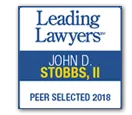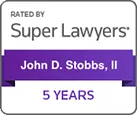The Second Circuit saved itself some trouble in their May 7 decision, ACLU v. Clapper. Faced with a challenge to the NSA’s bulk phone metadata collection program, the federal appeals court determined the practice exceeded the scope of the Foreign Intelligence Surveillance Act, particularly Section 215 of PATRIOT Act amendments.
For now, Section 215 allows the FBI or NSA to obtain “any tangible item” relevant to an authorized investigation, but the provision expires June 1. Because the vast majority of these records do not relate to any particular investigation, the NSA has been enjoined from continuing these mass sweeps of American’s information. In doing so, the court obviated the need to address Fourth Amendment claims raised against NSA. As such, the case does not seem to have much impact at first glance.
Interestingly though, the court took its time to appreciate the “daunting” task of addressing these issues. While the NSA denies recording actual phone conversations, the information they obtain through metadata collection implicates significant privacy concerns. Who you call and when, intuitively serve as “proxies” for recorded voice content.
The second circuit also offers a hint as to how they might analyze similar Fourth Amendment claims in the future. Since the landmark case, Katz v. United States, the “reasonableness” of societal privacy interests have become intrinsically interwoven into Fourth Amendment Jurisprudence. Previously, the law could only account for physical invasions and stood unprepared for modern, electronic investigative tactics.
This opinion seems to suggest that congress itself could make determinations of reasonableness. The case states, “endorsement of the Legislative Branch of government provides some degree of comfort in the face of concerns about the reasonableness.” Congress could not escape the Fourth Amendment completely, but the court says it will give weight such legislative evaluations of reasonableness.
The notion of legislatively constructed “reasonableness,” suggests the such sweeping searches might withstand Fourth Amendment challenges in the Second Circuit so long as statutes provide for them. Should Congress amend and extend the PATRIOT Act this June to account for Clapper, American courts may soon encounter another watershed moment for Fourth Amendment. Stay tuned.
SOURCES:
ACLU v. Clapper, No. 14-42-CV (2d Cir. May 7, 2015) available at http://www.ca2.uscourts.gov/decisions/isysquery/773a98db-d41d-4db8-95aa-182f994923b5/1/doc/14-42_complete_opn.pdf.
Orin Kerr, Second Circuit Rules, Mostly Symbolically, That Current Text of Section 215 Doesn’t Authorize Bulk Surveillance WASHINGTON POST, May 7, 2015.




